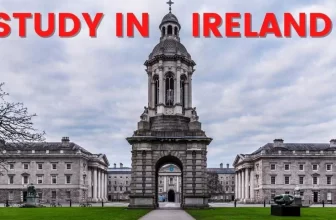
Studying abroad is a dream for many Indian students, and the UK remains one of the top destinations for higher education. With its rich academic heritage, world-renowned universities, and diverse cultural landscape, the UK offers a unique environment for personal and professional growth. This ultimate guide aims to provide Indian students aged 18-24 with all the essential information needed to navigate their study journey in the UK, from choosing the right institution to understanding visa requirements and living costs.
Table of Contents
- Introduction to Studying in the UK
- Why Choose the UK for Higher Education?
- Top Universities in the UK
- 3.1 University of Oxford
- 3.2 University of Cambridge
- 3.3 Imperial College London
- 3.4 Other Notable Institutions
- Courses and Programs Offered
- Cost of Living in the UK
- Accommodation Options
- Application Process for Indian Students
- Student Visa Requirements
- Scholarships and Financial Aid
- Cultural Diversity and Student Life
- Career Opportunities Post-Graduation
- Conclusion
1. Introduction to Studying in the UK
The United Kingdom has long been a hub for higher education, attracting students from around the world due to its prestigious institutions and comprehensive programs. In 2025, it is estimated that over 450,000 international students will enroll in UK universities, with a significant portion coming from India.
Key Highlights
- Diverse Academic Programs: The UK offers a wide range of courses across various disciplines.
- Cultural Experience: Students can immerse themselves in a rich cultural heritage while studying.
- Global Recognition: Degrees from UK universities are recognized worldwide.
2. Why Choose the UK for Higher Education?
Academic Excellence
The UK is home to some of the world’s top universities that consistently rank high in global rankings, such as QS World University Rankings and Times Higher Education.
Multicultural Environment
With students from over 200 countries, the UK provides a multicultural environment that enriches the educational experience.
Strong Industry Connections
Many universities have strong ties with industries, providing students with valuable networking opportunities and internships.
Quality of Life
The UK is known for its high standard of living, safety, and well-developed public services.
3. Top Universities in the UK
3.1 University of Oxford
- Rankings: Consistently ranked as one of the top universities globally.
- Programs Offered: A wide range of undergraduate and postgraduate courses.
3.2 University of Cambridge
- Reputation: Known for its rigorous academic standards and research output.
- Student Enrollment: Approximately 20,000 students, including many international scholars.
3.3 Imperial College London
- Focus: Specializes in science, engineering, medicine, and business.
- Global Standing: Ranked among the top ten universities worldwide.
3.4 Other Notable Institutions
- London School of Economics (LSE): Renowned for social sciences.
- University College London (UCL): Offers a diverse range of programs.
4. Courses and Programs Offered
UK universities provide various courses catering to different interests:
- Business Management: MBA programs focusing on global business strategies.
- Engineering: Mechanical, Civil, Electrical Engineering programs.
- Health Sciences: Nursing, Medicine, Public Health degrees.
- Creative Arts: Design, Media Studies.
Popular Courses for Indian Students
| Course | Institution | Duration |
|---|---|---|
| MBA | University of Oxford | 1 year |
| MSc Computer Science | Imperial College London | 1 year |
| BSc Engineering | University College London | 3 years |
5. Cost of Living in the UK
Understanding the cost of living is crucial for budgeting during your studies in the UK.
Monthly Expenses Breakdown
| Expense Type | Estimated Cost (£) |
|---|---|
| Accommodation | £600 – £1,500 |
| Food | £200 – £400 |
| Transportation | £100 – £150 |
| Utilities | £100 – £200 |
| Leisure Activities | £50 – £100 |
Overall, living costs in major cities like London can range from approximately £1,200 to £2,500 per month depending on lifestyle choices.
6. Accommodation Options
Finding suitable accommodation is essential for a comfortable student life.
Types of Accommodation
- University Halls: Most universities offer on-campus housing with various amenities.
- Private Rentals: Shared apartments or studios are widely available throughout cities.
- Homestays: Living with local families can provide cultural immersion.
Average Rent Prices
- University Halls: £600 – £1,000 per month
- Private Rentals: £500 – £1,500 per month depending on location and amenities
7. Application Process for Indian Students
Applying to study in the UK involves several steps:
Step-by-Step Guide
- Choose Your Course: Research programs offered by universities.
- Prepare Documents:
- Academic transcripts
- English proficiency test scores (IELTS/TOEFL)
- Statement of Purpose (SOP)
- Letters of Recommendation
- Submit Application: Apply through UCAS or directly through university portals.
- Attend Interviews (if required): Some programs may require an interview as part of the selection process.
- Receive Offer Letter: If accepted, you will receive an offer letter outlining next steps.
Important Deadlines
- Undergraduate Applications (UCAS): Typically due by January for autumn intake.
- Postgraduate Applications: Varies by program; typically around July-August.
8. Student Visa Requirements
To study in the UK as an international student, you will need a student visa.
Required Documents for Visa Application
- Acceptance letter from your chosen university (Confirmation of Acceptance for Studies).
- Valid passport with at least six months’ validity.
- Proof of sufficient funds (£1,483/month for London; £1,136/month outside London).
- Health insurance coverage (NHS surcharge).
- Recent passport-sized photographs (12 copies).
Application Process Steps:
- Get admitted to a UK university.
- Prepare all necessary documents.
- Submit your visa application online through the official government website.
- Pay the visa application fee (£363).
- Wait for visa approval (typically processed within three weeks).
9. Scholarships and Financial Aid
To ease financial burdens, various scholarships are available for international students:
Available Scholarships
- University Scholarships:
- Many universities offer merit-based scholarships covering tuition fees up to £5,000 per year.
- Government Scholarships:
- The Chevening Scholarship provides funding for outstanding students pursuing master’s degrees.
- Private Scholarships:
- Organizations like the Commonwealth Scholarship Commission offer funding based on specific criteria aimed at promoting education among international students.
10. Cultural Diversity and Student Life
The UK boasts a rich cultural landscape that enhances student experiences.
Cultural Events and Festivals
The country hosts various events throughout the year:
- The Notting Hill Carnival celebrates Caribbean culture through music and dance.
- The Edinburgh Festival Fringe showcases performances from around the world.
Student Support Services
Universities provide extensive support services:
- Academic counseling
- Mental health services
- International student support groups
- Career services to assist with internships and job placements
11. Career Opportunities Post-Graduation
Studying in the UK opens doors to numerous career opportunities due to its proximity to major businesses and industries.
Job Market Overview
The UK’s economy is diverse and robust:
- Information Technology
- Engineering
- Healthcare
According to recent statistics from local employment reports:
- Approximately one-third of jobs are within technology-related fields.
Work Visa Options for International Students
Post-study work visas allow international graduates to stay in the UK for up to two years after completing their degree under the Graduate Route scheme or apply for an Employment Permit if they secure a job offer within that period.
Conclusion
Studying in the UK presents an excellent opportunity for Indian students seeking quality education combined with cultural enrichment and career prospects. With its affordable living costs compared to other major cities globally, diverse academic offerings from reputable institutions like Oxford and Cambridge, and supportive environment tailored for international students, the UK stands out as an ideal destination for higher education.
As you embark on this exciting journey towards your academic goals—ensure you research thoroughly about universities that suit your interests while preparing adequately during transitions into this vibrant country! By considering all these factors outlined above within this guide—you can make informed decisions about studying abroad effectively!
Frequently Asked Questions (FAQ)
To apply for a UK student visa, Indian students must have an unconditional offer from a recognized UK institution, known as a Confirmation of Acceptance for Studies (CAS). Additionally, they need to demonstrate English proficiency (usually through IELTS), provide proof of sufficient funds to cover tuition and living expenses (£1,483 per month for London or £1,136 for other regions), and submit a valid passport along with other required documents.
Starting January 2, 2025, students applying for a UK study visa must show proof of funds covering living expenses of £1,483 per month if studying in London and £1,136 per month if studying outside London. For a one-year master’s program, this equates to approximately £13,347 for London or £10,224 for other regions.
Indian students should consider prestigious institutions such as the University of Oxford, University of Cambridge, Imperial College London, and University College London (UCL). These universities are renowned for their academic excellence and offer a wide range of programs that cater to diverse interests.
Yes, there are several scholarships available for Indian students pursuing education in the UK. Notable options include the Chevening Scholarship, which covers tuition fees and living costs for outstanding international students, and university-specific scholarships that can range from partial to full funding based on academic merit.
The cost of living in the UK varies by location but generally ranges from £800 to £2,500 per month. Major expenses include accommodation (approximately £600 to £1,500), food (£200 to £400), transportation (£100 to £150), and utilities (£100 to £200). Planning ahead and budgeting effectively can help manage these costs while studying abroad.






